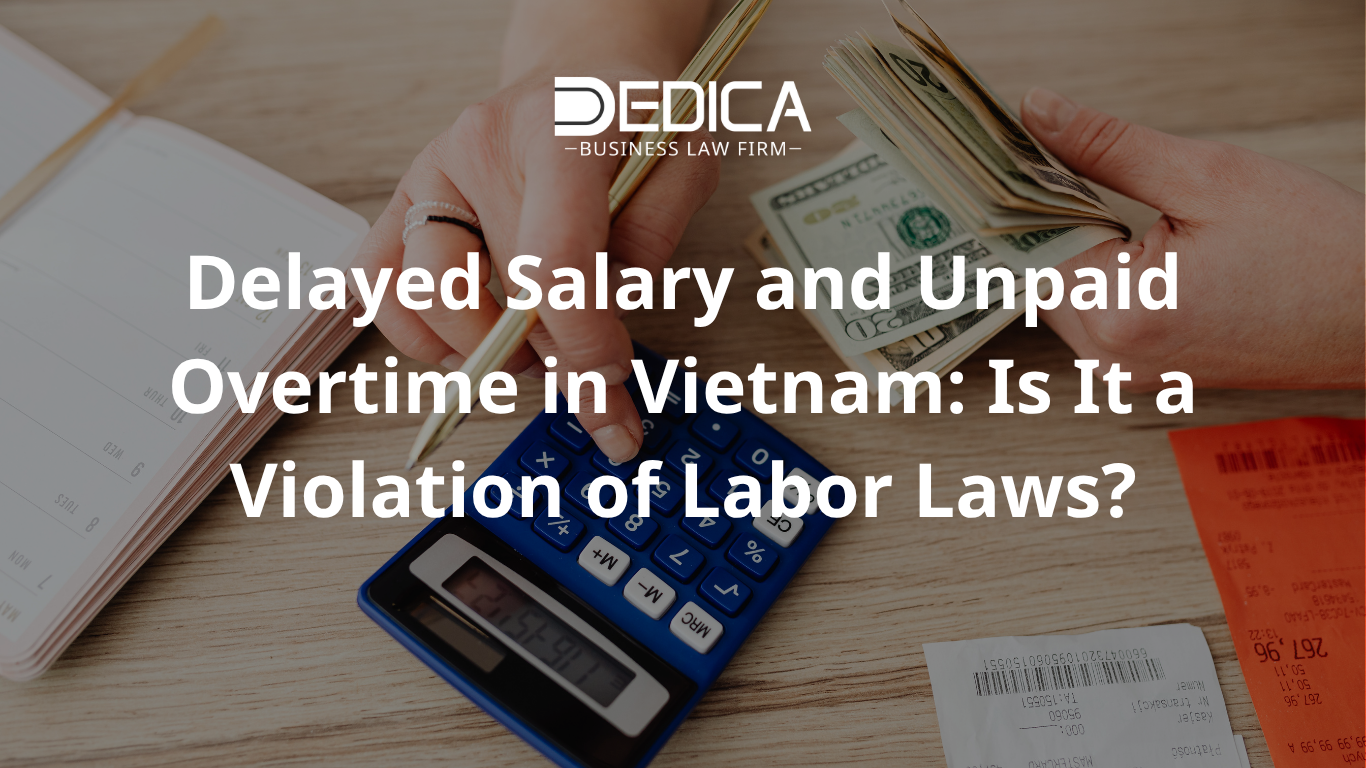
Unpaid wages and unpaid overtime remain a serious issue in many companies in Vietnam. While workers toil day and night to fulfill their responsibilities, many employers delay or even refuse to pay their rightful earnings. This is not only unfair—it is a serious violation of the law.
Is delayed salary and unpaid overtime illegal?
Many employees hesitate to speak up for fear of retaliation or job loss. However, failing to pay wages or overtime is not just irresponsible—it is a serious legal violation. Workers must understand: the law protects you if you know how to use it.
Employers are obligated to pay salaries and overtime on time
Under Article 94 of the 2019 Labor Code, employers must pay employees in full and on time. In force majeure cases, payment may be delayed but not more than 30 days. If the delay exceeds 15 days, employers must pay interest based on bank rates.
Similarly, Article 97 stipulates that overtime work must be paid at a higher rate than regular hours (at least 150%, 200%, or 300% depending on the timing). Failing to pay overtime is a direct violation of workers’ rights.
Delayed payment can lead to lawsuits and compensation
If an employer deliberately delays or refuses to pay salaries and overtime, employees have the right to sue. Under the Civil Procedure Code, the court may order the company to pay both the owed amount and additional interest (not exceeding 20% per year under Article 468 of the Civil Code).

What should employees do when salaries or overtime go unpaid?
Silence or resignation won’t protect your rights. Instead, take legal steps to claim what’s rightfully yours—you are not alone.
Step 1: Gather and preserve evidence
Keep:
Employment contract or hiring decision.
Payslips, timesheets, handover records.
Proof of salary advances or emails about work.
Proof of overtime: work schedules, confirmations from managers or coworkers.
Step 2: Send a formal payment request
Before going to court, send a written request to the employer stating the amount owed, payment delays, legal basis, and a reasonable deadline.
Step 3: Mediation through labor authority
Prior to litigation, workers must go through mediation at the Department of Labor, Invalids and Social Affairs. A mediator will document the parties’ statements—this is a mandatory step for individual labor disputes.
Step 4: File a lawsuit
If mediation fails or is not conducted within the legal timeline, workers can sue at the court where the company is based or where the work was performed.

Key notes when initiating a wage dispute lawsuit:
Time limit: 1 year from the date of discovering rights infringement.
No upfront court fees: Employees are exempt from advance fees and only pay if they lose.
Act early: Don’t wait. Legal action is the only way to protect your interests.
DEDICA Law Firm is here to help
We have supported many clients—both employers and employees—in labor disputes, including prolonged court cases. Our mission: maximize legitimate rights and help clients avoid legal risks.
If you’re facing delayed salary or unpaid overtime, let DEDICA support you from the very beginning.
📞 Hotline: (+84) 39 969 0012 (Support via WhatsApp, WeChat, Zalo)
🏢 Head Office: 144 Vo Van Tan Street, Xuan Hoa Ward, District 3, Ho Chi Minh City
(Former address: 144 Vo Van Tan Street, Vo Thi Sau Ward, District 3, HCMC)
🕒 Working Hours: Mon – Fri (8:30 AM – 6:00 PM)
Contact us now for a free initial legal consultation!

Select a platform to view details